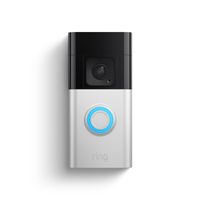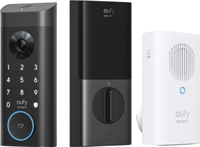Best video doorbells in 2025: Ring, Nest, Arlo and more tested
These are the best video doorbells based on video quality, notifications, smart home integration and more
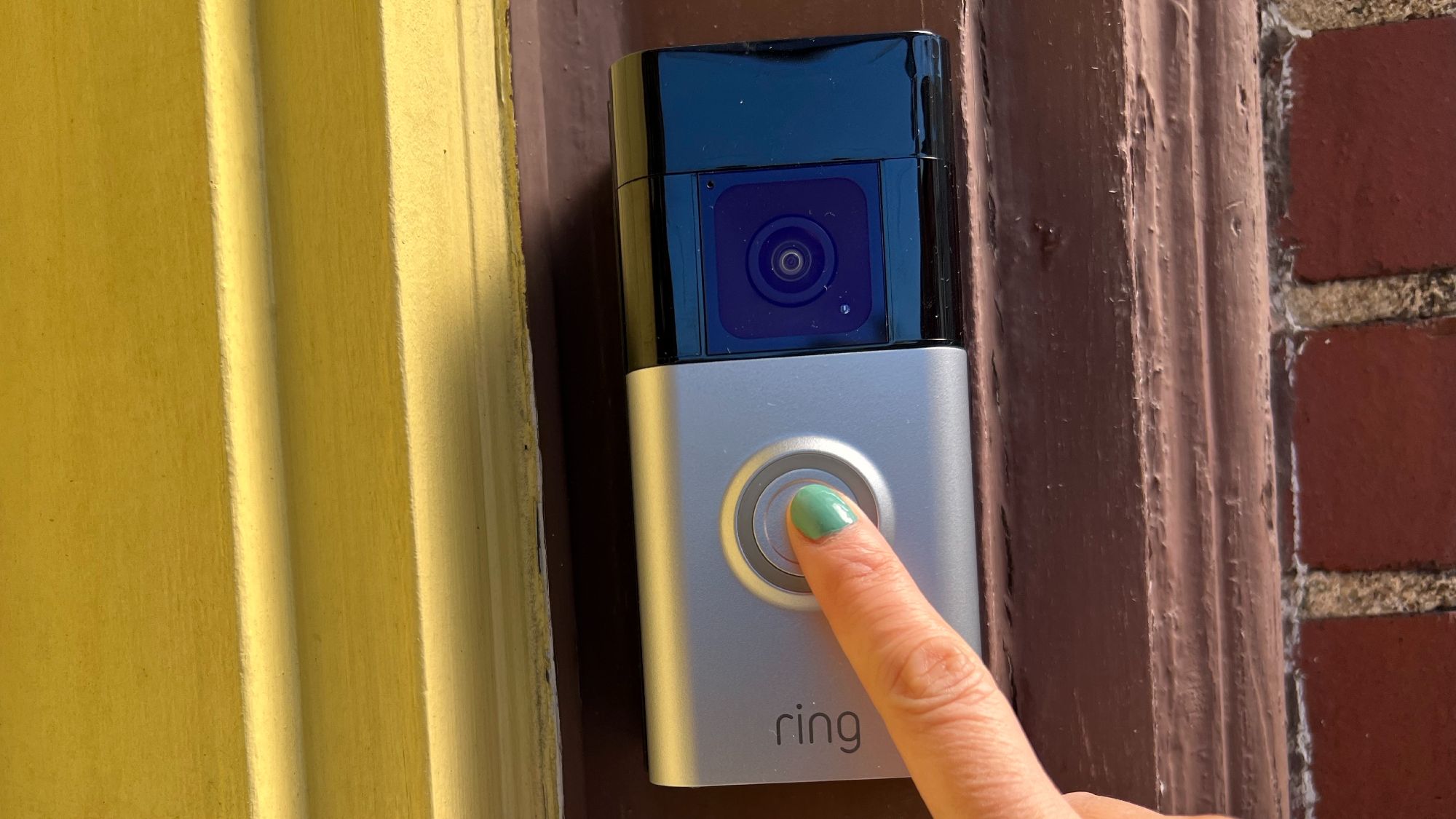
- The quick list
- Best overall
- Best value
- Best subscription-free
- Best Nest
- Best Ring under $100
- Best wired-only
- Best for apartments
- Best HomeKit doorbell
- Best Arlo video doorbell
- Video doorbells compared
- Also tested
- How to pick
- Video doorbells vs. security cameras
- Privacy and law enforcement issues
- Frequently asked questions
- How we test video doorbells
If you're like me, you get multiple packages, deliveries, and people knocking at your door every week — and you're not always there to answer your door. That's where one of the best video doorbells comes in handy. Not only can you see who's there, but you can also check if there's a parcel at your doorstep — and if someone's trying to steal it.
Or maybe you simply don't want to answer the door. I've had more than my share of solicitors trying to sell me solar panels, lawncare, and replacement windows, so rather than opening my door when someone rings, I just look at the live feed on my app to see if I recognize them. It's saved me lots of aggravation.
But which is the best at this? I, and the rest of the Tom's Guide team have tested dozens of video doorbells, and agree that the best for most people is the Ring Battery Doorbell Plus. It's reasonably priced, can be hardwired or run off batteries alone, offers clear head-to-toe video, and has package detection. However, you'll need to sign up for a subscription for that last feature. If you'd rather not we recommend the Eufy Video Doorbell Dual, which gets you all that, without the recurring monthly fee.
For a deeper dive between the top two brands, be sure to check out our comparison of Ring vs. Nest video doorbells, as well as our best Ring Video doorbells page, which examines every Ring video doorbell in depth.
Read on for all of our favorite video doorbells.
The quick list

The Ring Battery Doorbell Plus is the company's first battery-powered model that offers head-to-toe video and package detection. Plus, it has a removable battery.
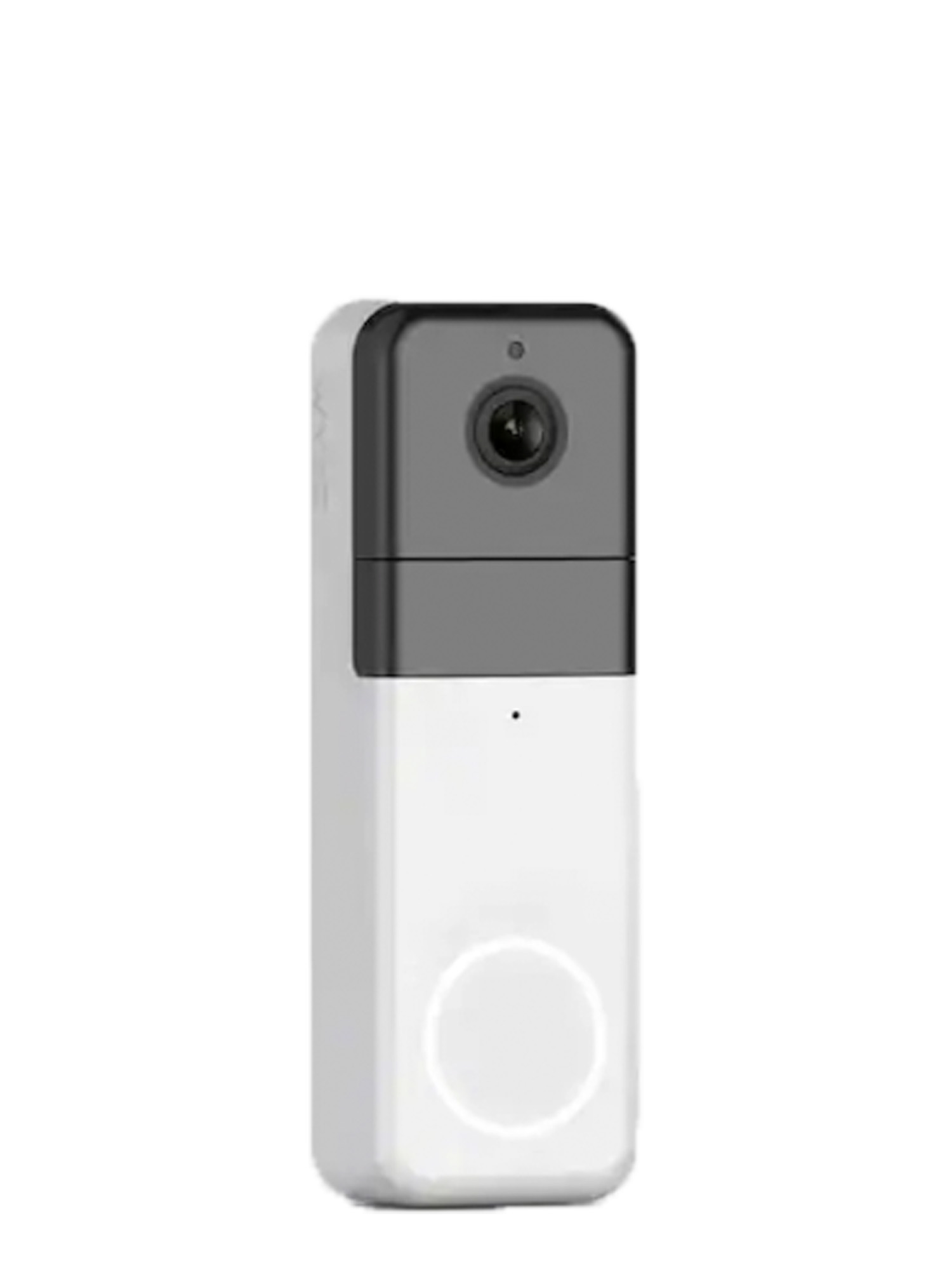
A great deal for under $100. It has a head-to-toe field of view and comes with a wireless chime. However, you'll need a subscription to get person and package detection.
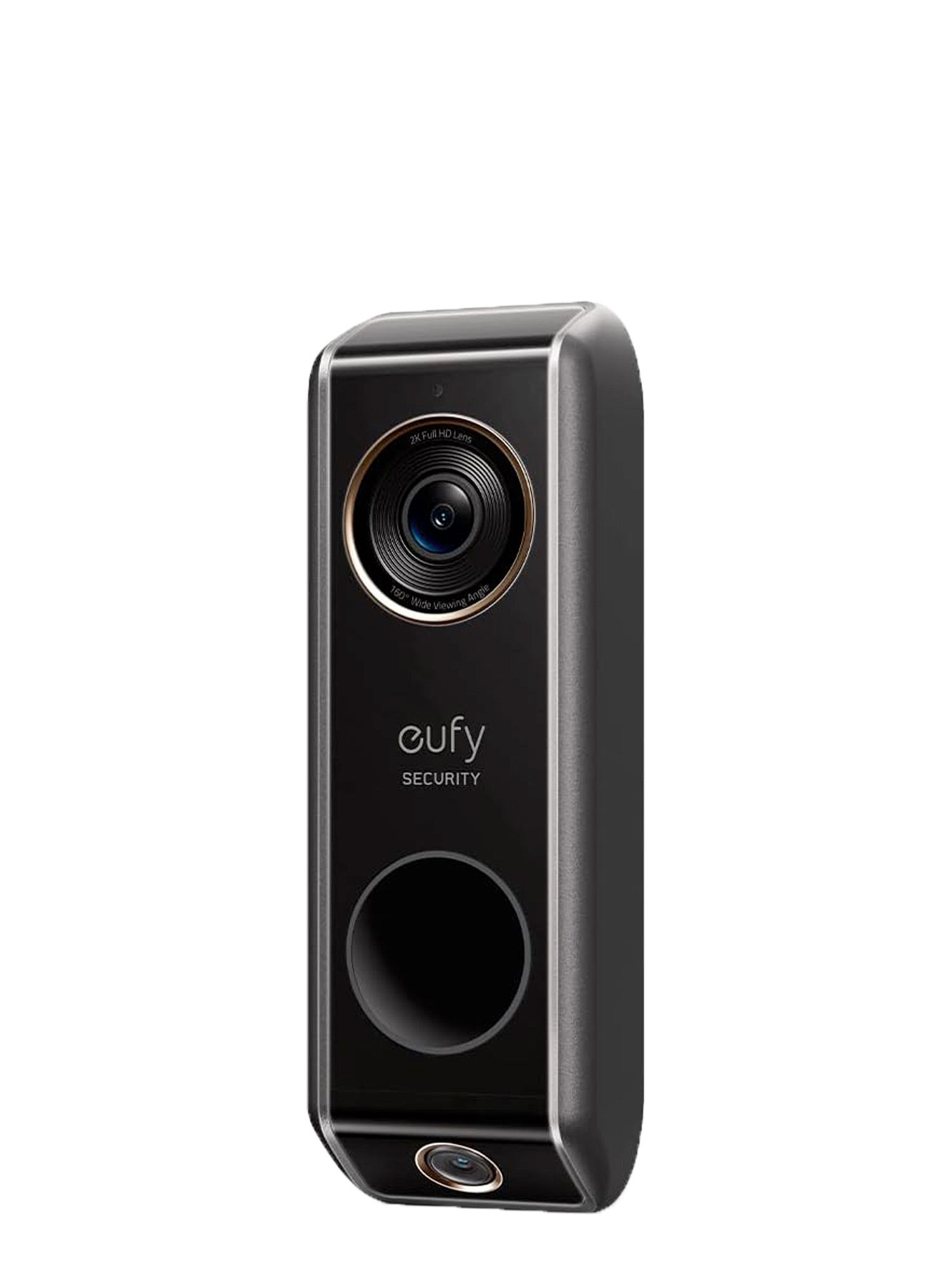
This video doorbell has two cameras, so you can clearly see when there's a package at your door. Even better - there's no subscription fees for extra features like package detection.
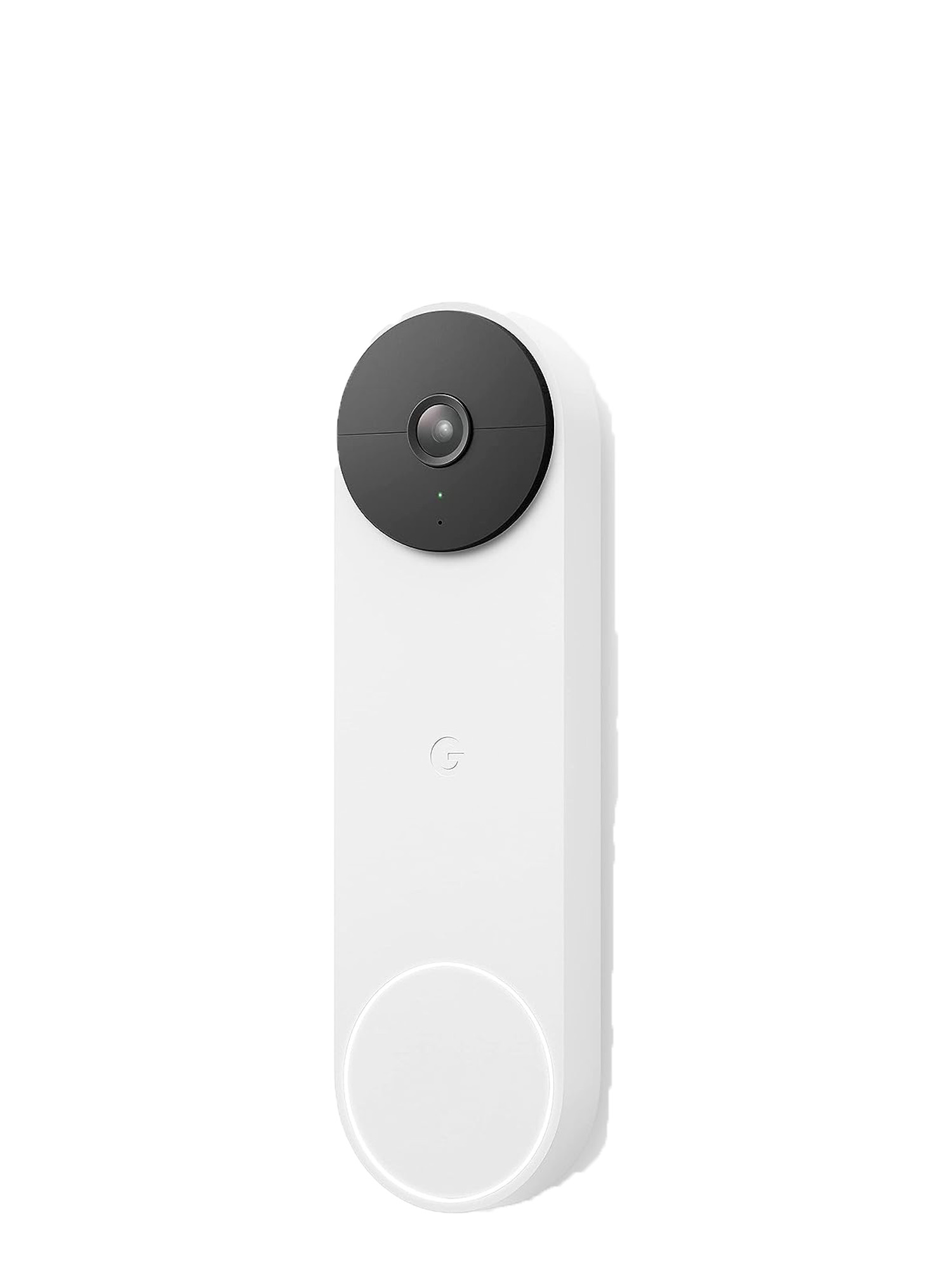
This video doorbell offers a nearly head-to-toe view, as well as person, package, and vehicle detection. And, it also offers three hours of video storage without a subscription.

Ring's $99 video doorbell is its least expensive model with package detection, and has head-to-toe video. You'll also need a subscription to use all its features.

This doorbell has head-to-toe video, package detection, and a host of other features to give you a better idea of who's lurking around your front door.
View 3 more products...

This clever video doorbell replaces your peephole with a camera, so you can be alerted to whoever comes to your apartment door. And, it's easily removed for when you move.
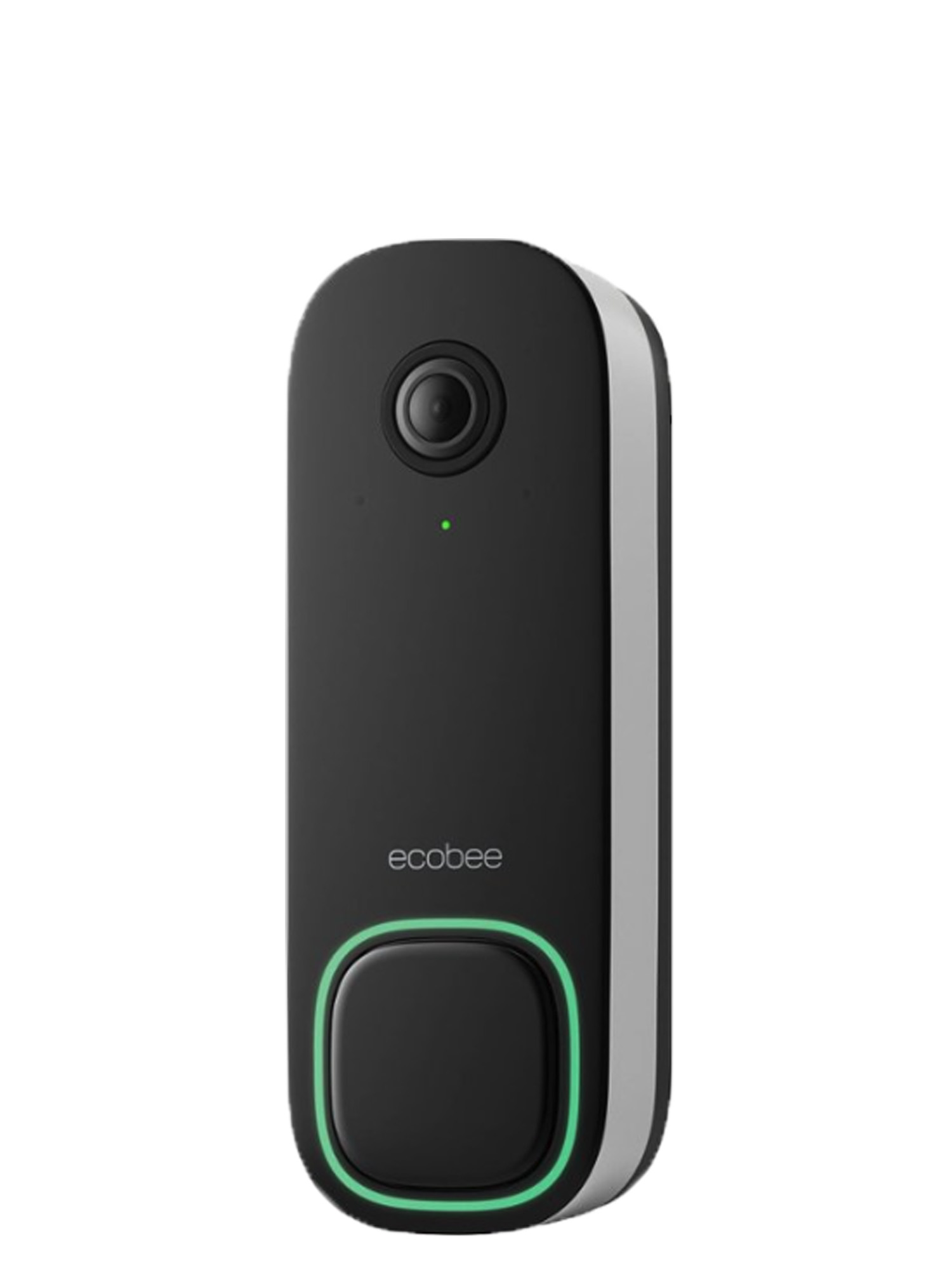
There aren't many options for Apple HomeKit users; this is your best bet. It offers a great view of your front porch area and has person and package detection.
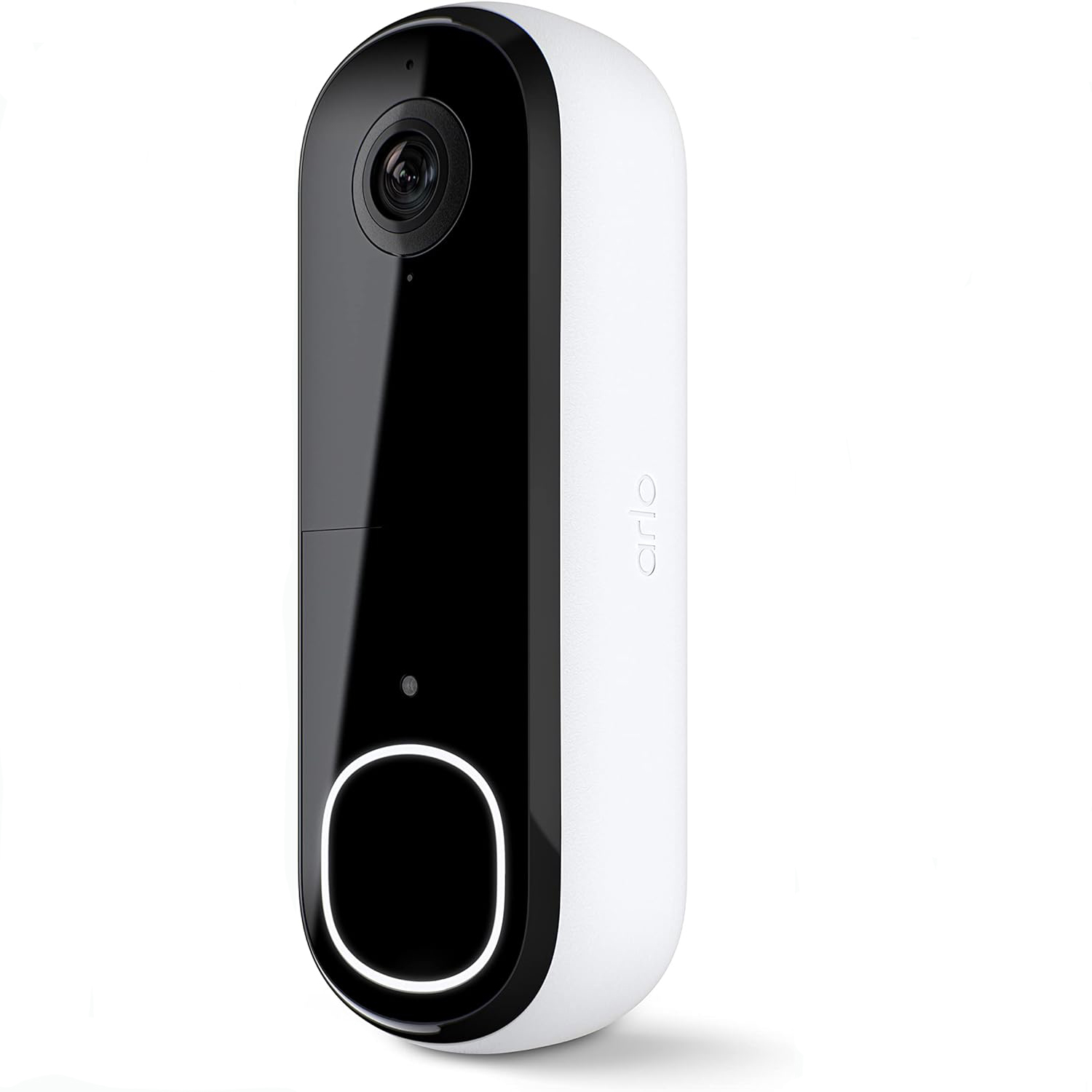
This video doorbell also has an expansive view, person/package/animal detection, and works either wired or on battery power. It's a good option if you're into Arlo's other security cameras.
The best video doorbell
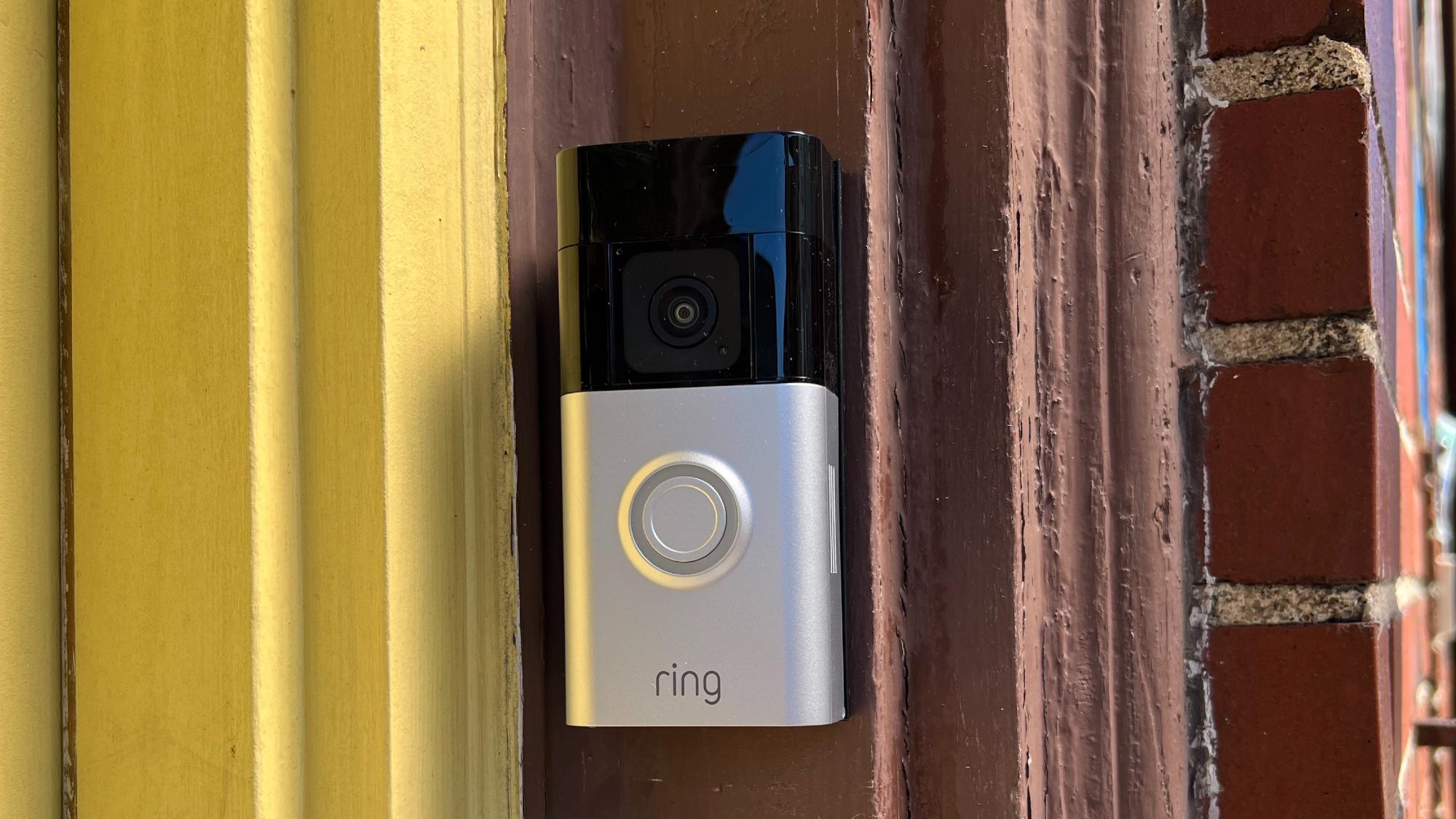

Specifications
Reasons to buy
Reasons to avoid
The Ring Battery Doorbell Plus is only the second of Ring's video doorbells that offers a head-to-toe view of your front door — and is the first battery-powered model to do so. And, it's one of the few Ring doorbells with package detection, so you'll know when there's a delivery at your door.
The Ring Battery Doorbell Plus delivered a sharp and clear image, and visitors could hear us clearly. We also liked that its battery was removable, so that we didn't need to take the entire unit off our door when it needed a recharge.
Our only real issue was that the package detection could be a bit spotty at times. And, there's no local storage, so if your internet connection goes down, it won't record who's at your door. Otherwise, we came away impressed with all it could do.
If you want to go with an upgrade pick, the Ring Battery Doorbell Pro ($229) has all of the features of the Ring Battery Doorbell Plus, but also includes 3D Motion Detection and Bird's Eye view, two features found on the more premium Ring Video Doorbell Pro 2.
Read our full Ring Battery Doorbell Plus review.
Best video doorbell value
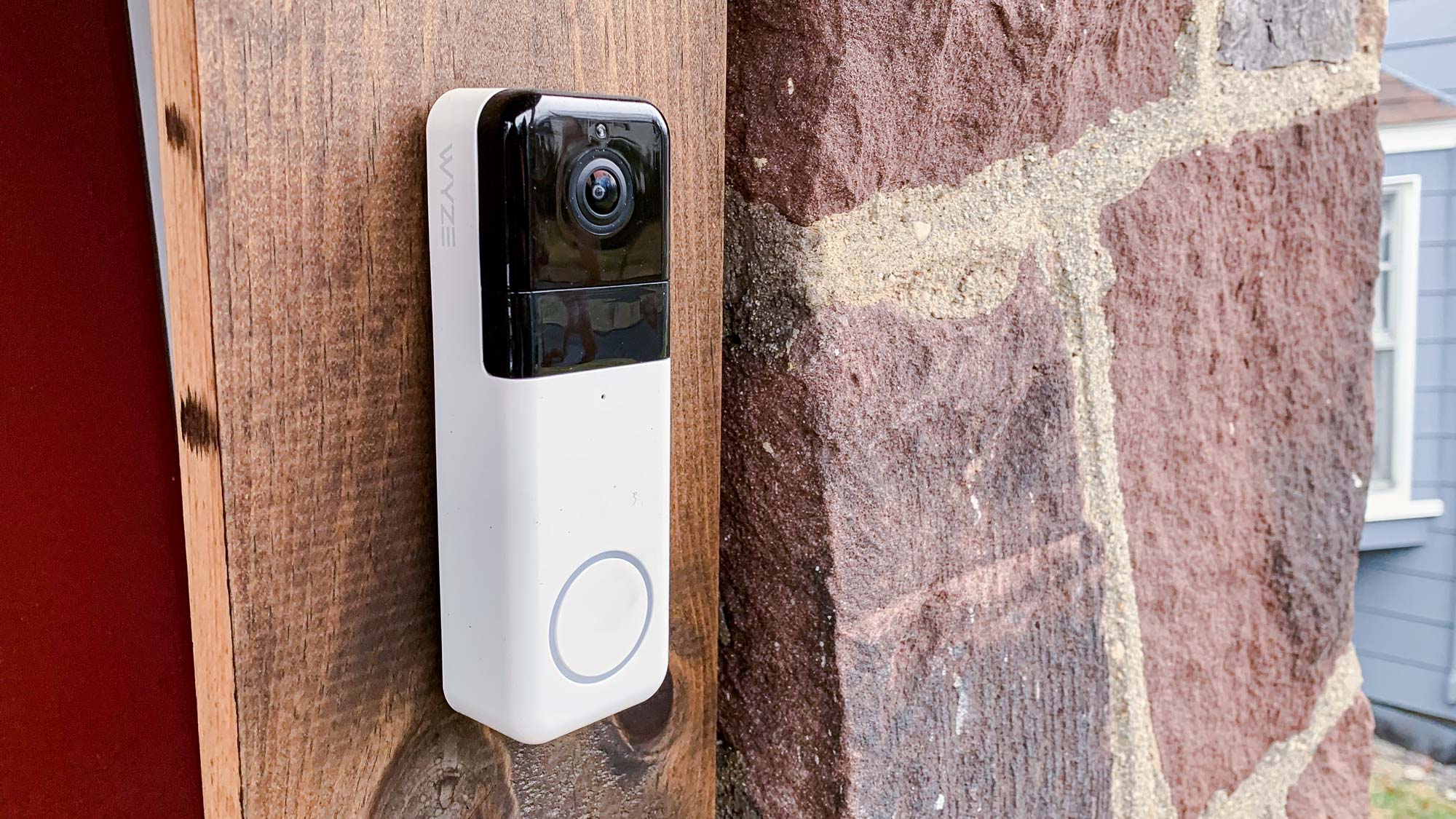

Specifications
Reasons to buy
Reasons to avoid
The Wyze Video Doorbell Pro is the best video doorbell under $100; while it's not perfect, it offers a lot for the money. You get a doorbell that can be wired or run on battery power alone, an included electronic chime, and package detection. And, Wyze's subscription costs less than Ring, Nest, and Arlo.
We also liked that the Wyze's camera has a 150 x 150-degree field of view, which means you see as much vertically as you do horizontally — this also means you see more of your front stoop, where packages are most likely to be dropped.
However, to use package detection, as well as save recordings, you'll need a Wyze Cam Plus subscription, which at $1.99 per month is cheaper than the competition.
The biggest compromise we had with the Wyze was that you need to remove the entire unit when you need to recharge its battery — which means you'll be without a doorbell for an hour or so.
We also think the Wyze Video Doorbell Pro isn't as attractive as some of the other models, but for $89 — which includes a wireless chime — it's something we can overlook.
Read our full Wyze Video Doorbell Pro review.
Best video doorbell without subscription
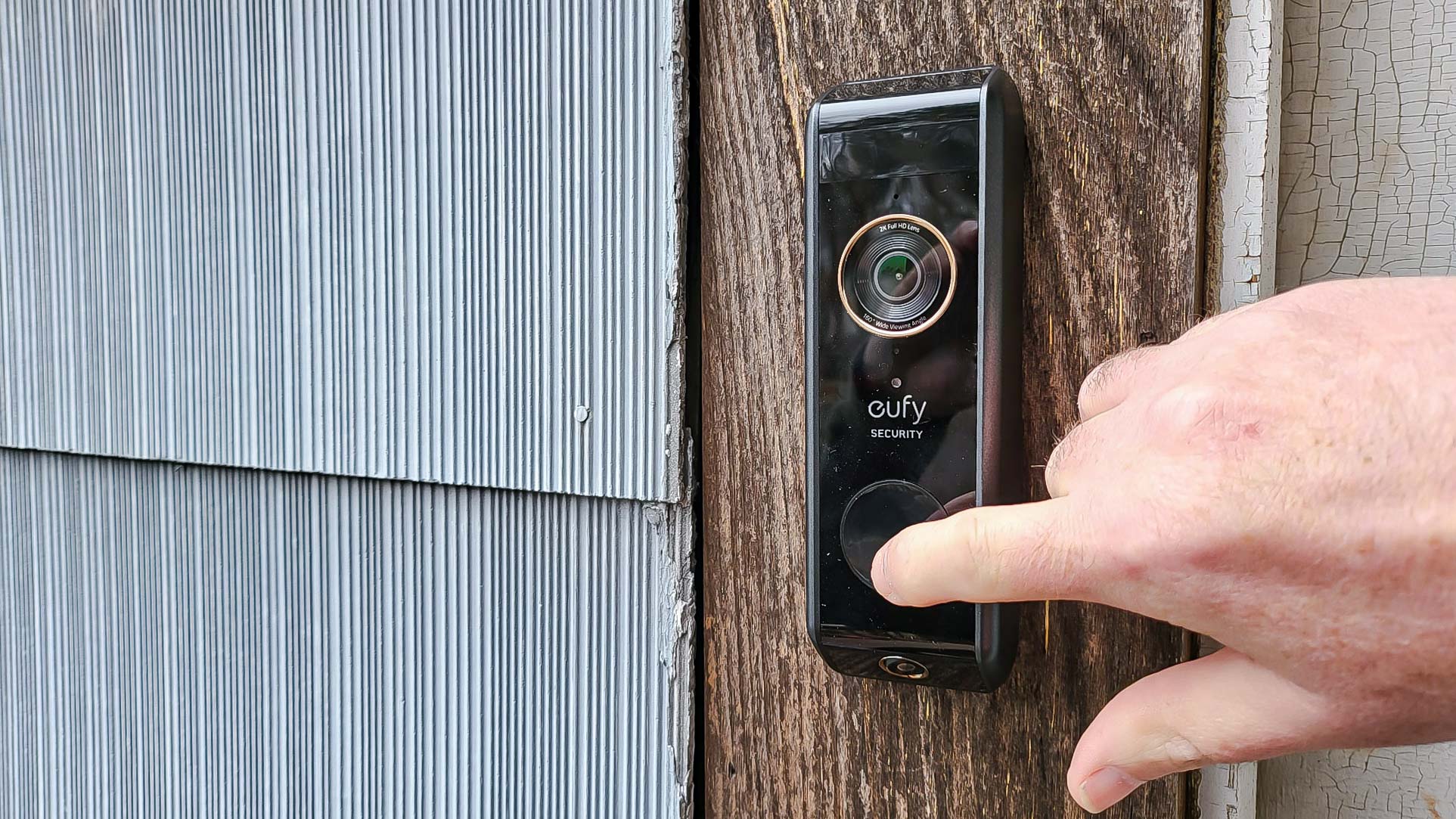

Specifications
Reasons to buy
Reasons to avoid
Package theft is an all-too-common problem, and the best video doorbells have adapted with cameras that have a more vertical field of view, so you can better see more of your front porch.
The Eufy Video Doorbell Dual takes things one step further, with a second camera that points directly downward, giving you the clearest view possible. What's more, it also comes with package detection, so you'll get an alert when something gets dropped off. Yes, the picture you get in the app looks a little funny, as half of the screen shows you the view from the top camera, while the bottom half shows the view from the bottom camera, but in our tests, it worked flawlessly, giving us the best view of packages we've seen from any video doorbell we tested.
Even better: You get all this without needing to pay a monthly subscription fee, which is a rarity among the best video doorbells.
We also liked that the Eufy saved video to a local, secure base, so that it can continue to record video even if your internet connection goes down. Yes, the Eufy costs more upfront, but it could save you money in the long-term.
Read our full Eufy Video Doorbell Dual review.
Best Nest video doorbell
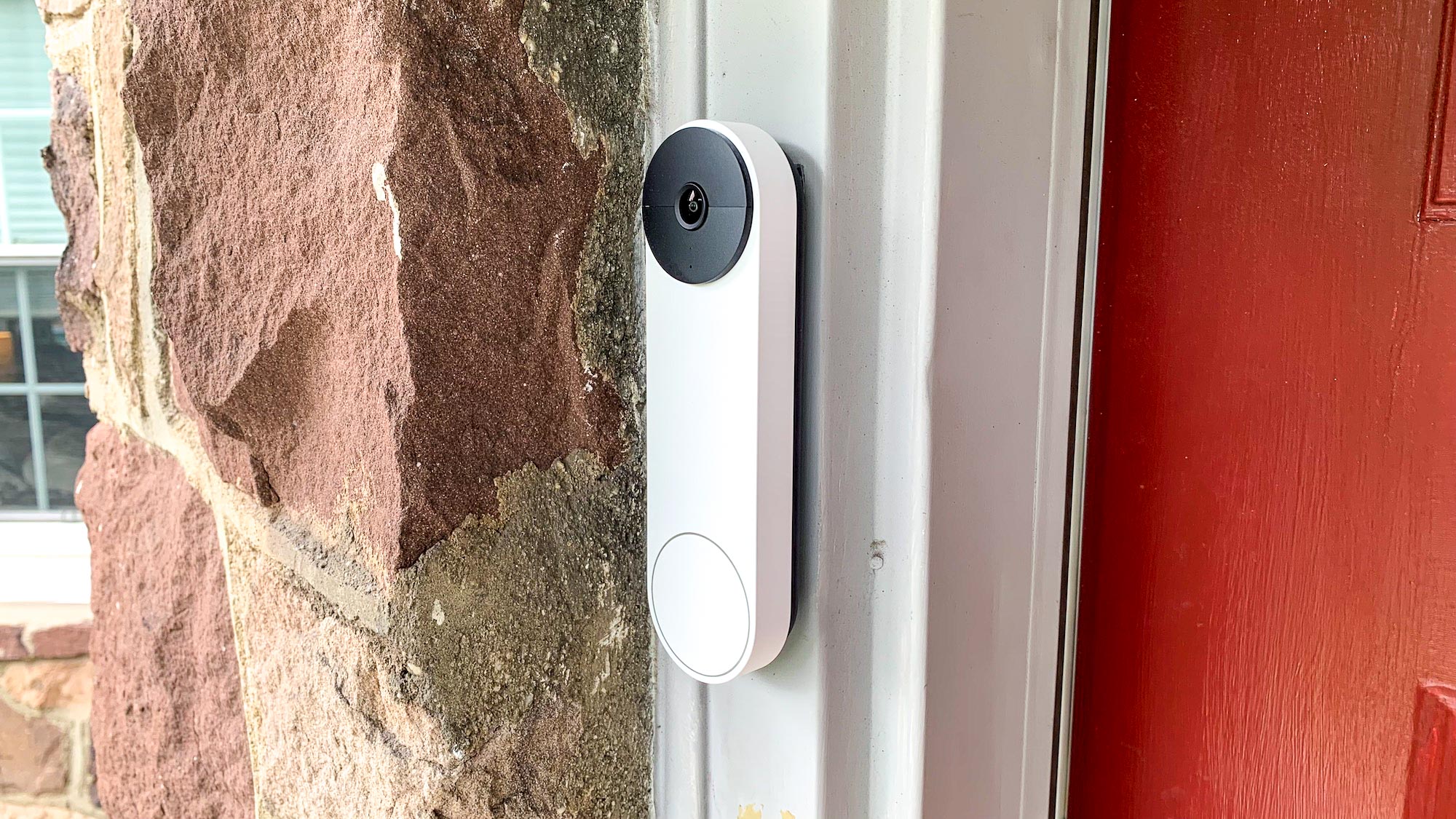

Specifications
Reasons to buy
Reasons to avoid
The Nest Doorbell (battery) gets almost everything right. Its 3:4 vertical aspect ratio means you can see more of your front door; it can work either wired or on battery power alone, and it has a lot of great features, such as the ability to recognize familiar faces, packages, animals, and vehicles. In our testing, we found the videos to be very clear and crisp, though the familiar faces feature — which you won't find on other video doorbells — could be a little creepy. We suspect we'll see this on more devices in the future, though.
Even better is that the camera also offers some of those features for free, as well as three hours of rolling video storage — things that used to require a subscription. If you want longer storage — you probably will — you can still sign up for Nest Aware, which starts at $6/month. It's not as affordable as the subscriptions from Ring or Wyze, though.
The biggest tradeoff to the Nest doorbell's slim design is that, unlike the Nest Battery Doorbell (and Battery Doorbell Plus), its battery is not removable. So, if you need to recharge it, you have to remove the entire unit from your door, which can be a pain.
If you don't need a battery-operated model, Nest also makes a wired-only version of its doorbell, which isn't as tall.
Read our full Nest Doorbell (battery) review.
Best Ring under $100
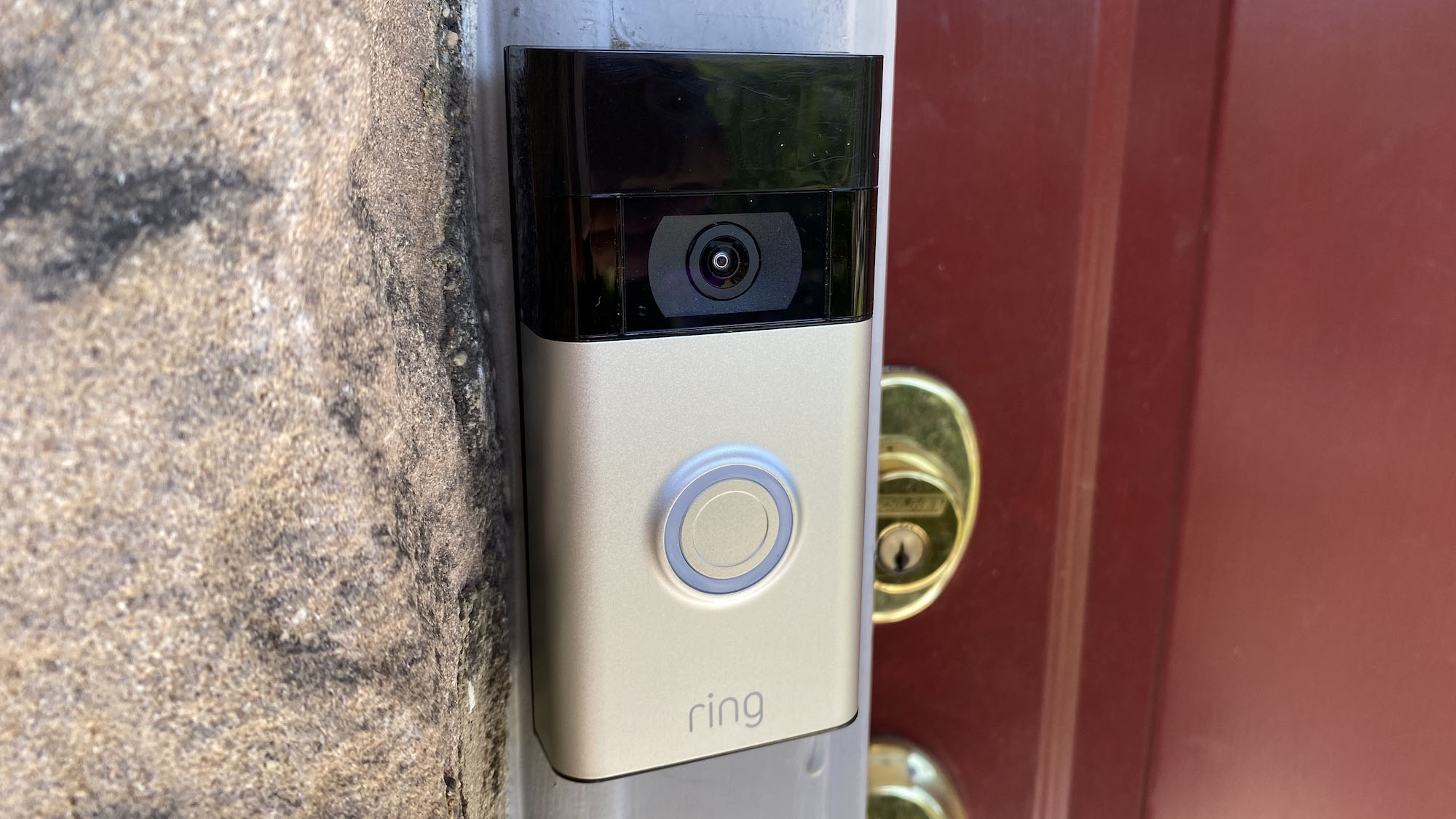
Specifications
Reasons to buy
Reasons to avoid
If you want to go with Ring, the Ring Battery Doorbell is the best value option for most people. It costs less than $100, has head-to-toe video, as well as package detection. It's still the best video doorbell for those on a budget.
We also like that you can use this model either wired or on battery power alone, and you can create custom motion zones, and also see what's going on in your neighborhood. Plus, Ring offers very affordable video storage plans starting at $30 a year.
The one caveat with this model is that its battery is nonremovable, so if you're operating it on battery power alone, you have to take the whole unit off your door to recharge it periodically.
We haven't tested this one yet (it's in the works), but we've tested every other Ring video doorbell, which have all of the same features as this model.
Best wired-only video doorbell
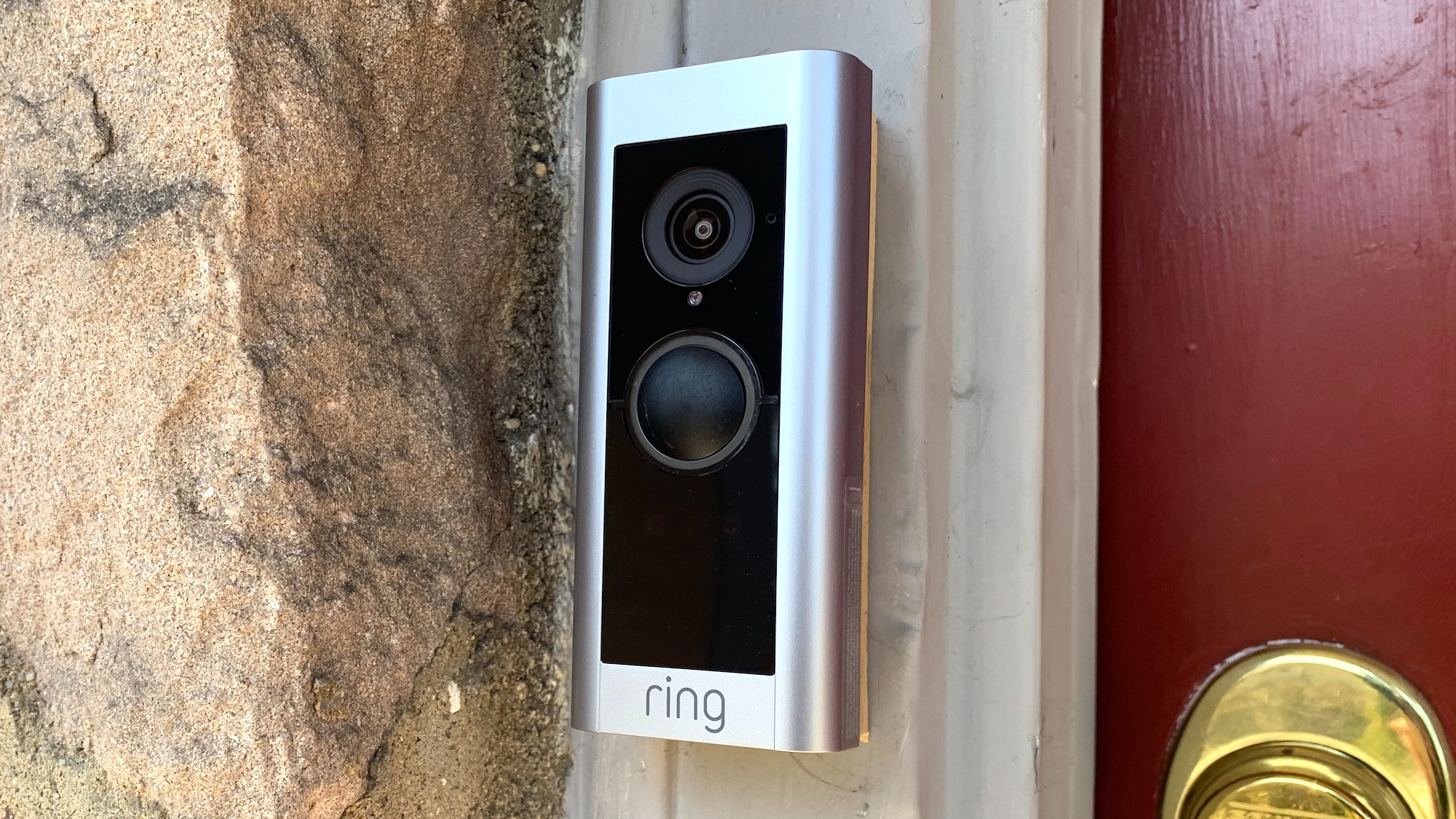

Specifications
Reasons to buy
Reasons to avoid
The Ring Video Doorbell Pro 2 was the first from the company to feature a camera with a square aspect ratio, which means the video is as tall as it is wide. What that means is that it can show much more of your front stoop than other Ring doorbells — so you're more likely to see when a package has been dropped off. When we switched to this model on our door, the change was immediately apparent, and very welcome.
Better yet, Ring added package detection, so you know when something arrives. It also has customizable motion zones and a new "radar" feature that helps cut down on unwanted notifications.
In our tests, the Ring Video Doorbell Pro 2 delivered excellent video quality, was very responsive, and wasn't too hard to install. Because there's no battery inside, it's also one of the most compact video doorbells we've tested, which can be useful if you have a narrow door frame.
Just know that because it's not battery-operated, you won't be able to record video if your power goes out, and you'll also need to subscribe to a Ring Protect plan (starting at $3/month or $30/year) if you want to get the most out of the video doorbell. But if you're looking for something slim, sleek, and capable, we really liked this model.
Read our full Ring Video Doorbell Pro 2 review.
Best video doorbell for apartments
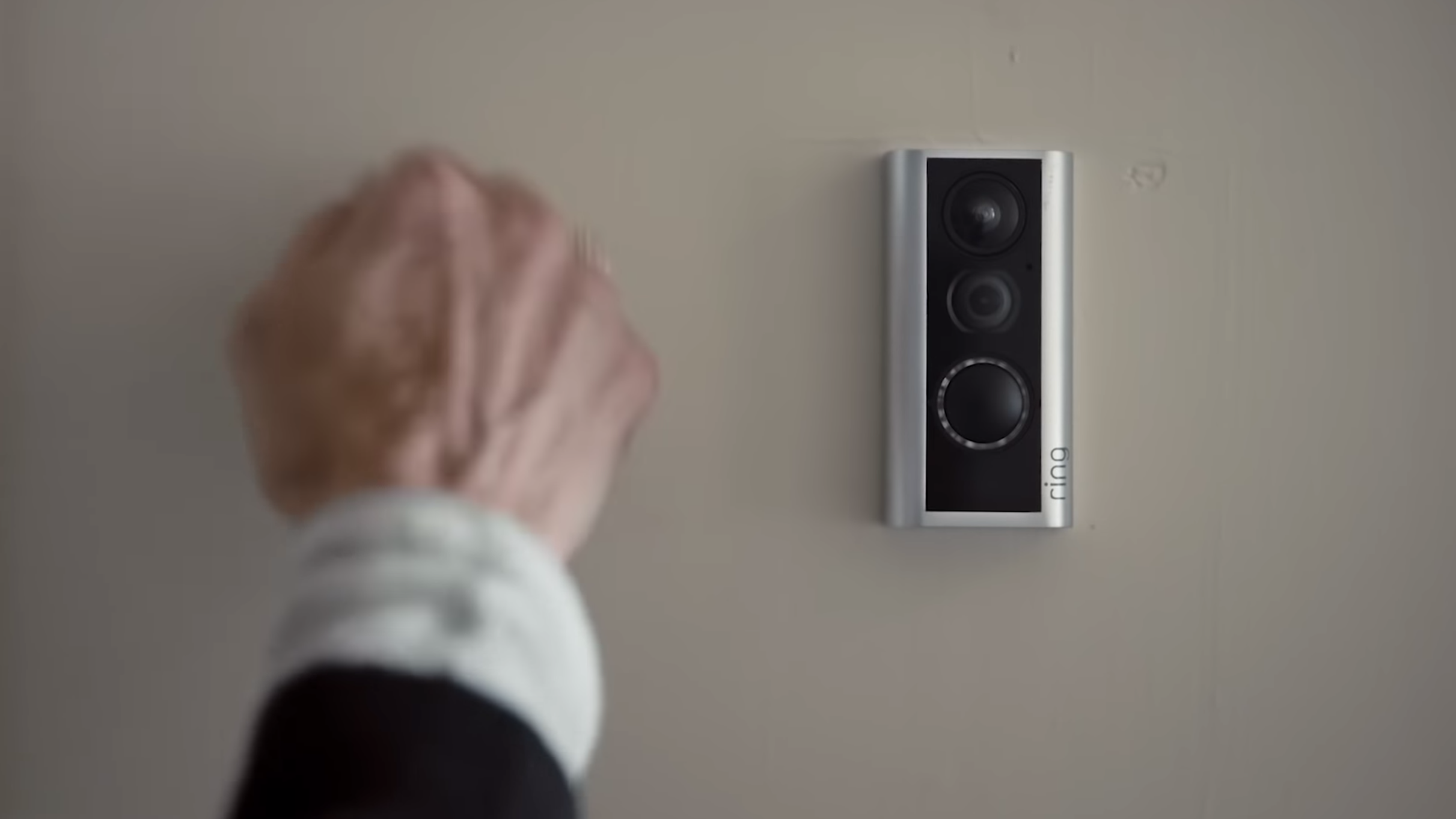

Specifications
Reasons to buy
Reasons to avoid
If you're looking for a video doorbell, but rent an apartment or live some place where you can't install a traditional video doorbell, the Ring Peephole Cam is your best alternative. This device replaces your traditional peephole with a camera that can record visitors coming to your door. It proved to be such a popular model that Ring brought it back in 2023 after discontinuing it in 2022 — and now it's at a lower price of $129.
We found the Ring Peephole Cam was easy to install, and recorded very good 1080p video. However, if you have a storm door, the camera's video will be partially obscured, especially at night, when it reflects off the glass of the door. And, because the Peephole Cam is battery-powered only, you may find yourself recharging it more often than the advertised 20-40 days. Good thing spare batteries are just $30.
Read our full Ring Peephole Cam review.
Best Homekit-compatible video doorbell
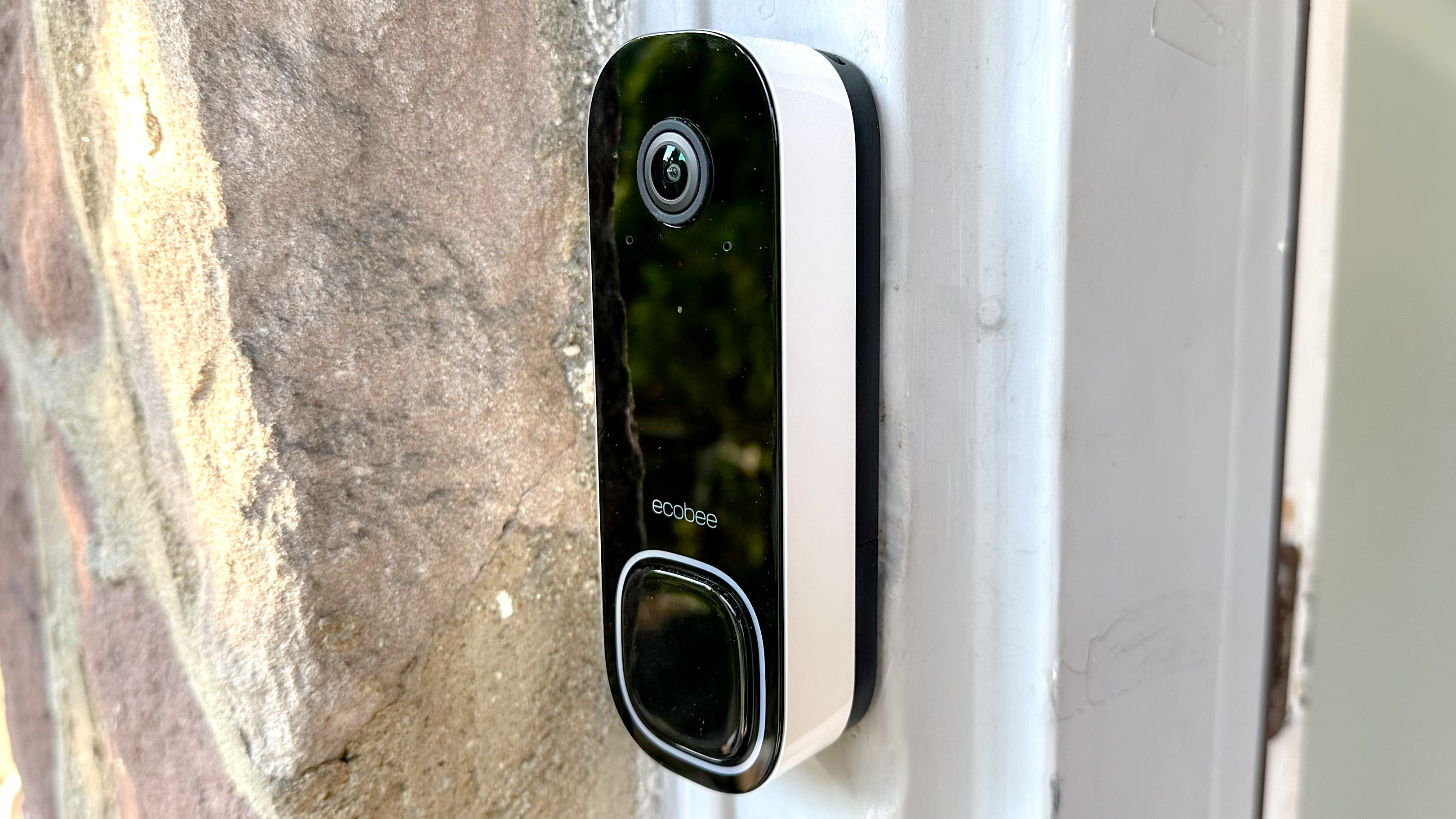

Specifications
Reasons to buy
Reasons to avoid
The Ecobee Smart Doorbell Camera is one of a very limited number of video doorbells that works with Apple's HomeKit. It's also the least expensive and most fully-featured of the bunch, too, with head-to-toe video and person and package detection.
We really liked the image quality from the Ecobee, as well as the fact that we could answer the video doorbell not just from our phone, but also our Apple Watch and Amazon smart displays (Google support is in the works).
Its package detection was also really helpful, as was a beta feature that automatically pans and zooms in on a subject as they approached our front door.
Unlike the Logitech Circle View Doorbell, which lets you use your Apple iCloud account to store video, Ecobee requires that you use its own subscription service (starting at $5/month) if you want to save videos and have access to such features as package detection. That's not as competitive as some of the other video doorbells on this page — Ring and Wyze, to name two — but it's the price you pay if you want something that works with HomeKit and has package detection.
Read our full Ecobee Smart Doorbell Camera review.
Best Arlo video doorbell
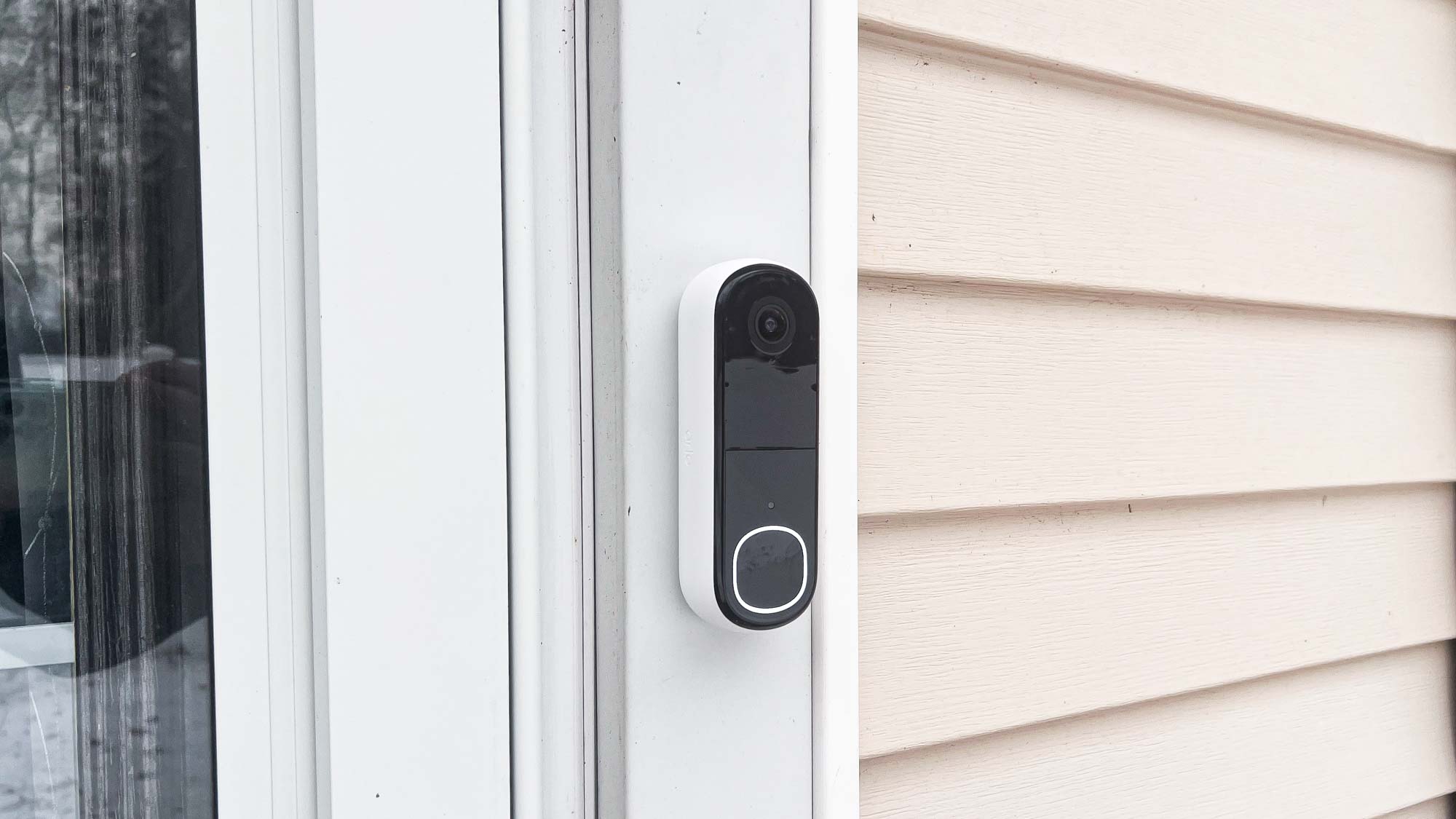

Specifications
Reasons to buy
Reasons to avoid
Arlo makes some of the best home security cameras, so it should be no surprise that the Arlo Video doorbell 2K makes it on our list of the best video doorbells, too. It's one of the few video doorbells that has a higher than 1080p resolution, so in theory it should deliver a more detailed image than the competition.
We found that claim to largely be true, especially in daytime, though the difference between it and other video doorbells was less pronounced at night. Arlo's video doorbell also works with Alexa and Google Assistant, so can receive notifications on smart speakers, and livestream video from the doorbell to an Amazon Echo Show or Google Nest Hub smart display.
Arlo's app has a ton of features, but some of them, such as motion sensitivity, are difficult to find. And, for most of the smarter features, including video storage, you need to sign up for a subscription, which starts at $5/month for a single camera, and gets you just 30 days of stored video history — far less than Ring and Nest. But, if you have Arlo's security cameras, its video doorbell will make an excellent addition, as you can add up to five cameras for $10 a month.
Read our full Arlo Video Doorbell 2K review.
Video doorbells compared
| Row 0 - Cell 0 | Power | Video resolution | Field of view | Package detection |
Ring Battery Doorbell Plus | Battery/wired | 1536 x 1536 | 180° diag. | Yes w/ subscription |
Wyze Video Doorbell Pro | Battery/wired | 1440p | 150° x 150° | Yes w/ subscription |
Eufy Video Doorbell Dual | Battery/wired | Front Camera 2K (2560 ×1920), Package Camera 1080p (1600 × ️1200) | Front Camera 160°, Package Camera 97° | Yes |
Nest Doorbell (battery) | Battery/wired | 960 x 1280 | 145º | Yes w/ subscription |
Ring Video Doorbell (2nd gen) | Battery/wired | 1080p | 160º | Yes w/ subscription |
Ring Video Doorbell Pro 2 | Wired | 1536 x 1536 | 150° x 150° | Yes w/ subscription |
Ring Peephole Cam | Battery | 1080p | 155° horizontal, 90° vertical | No |
Ecobee Smart Doorbell Camera | Wired | 1080p | 175º vert | Yes w/ subscription |
Arlo Video Doorbell 2K | Battery/wired | 2K (1944 x 1944) | 180º (diagonal) | Yes w/ subscription |
Also tested
Ring Battery Doorbell Pro (★★★★★): This video doorbell has everything we loved with the Battery Doorbell Plus, but adds 3D motion tracking, which is a nice-to-have but not necessary feature for most. And, as with all Ring cameras, you'll need a subscription to save videos.
Eufy E330: This video doorbell also doubles as a smart lock, so you can keep your door jamb free from extra hardware. It has a 2K camera, but it's not vertically oriented, so you won't see if someone's left a package. And, it's not very obvious that you need to press a button on the lock to ring the bell.
How to choose the best video doorbell
Battery vs. Wired
Video doorbells come in one of two varieties: Wired or battery powered (Some, like the Ring Video Doorbell 4 and the Nest Doorbell (battery) can do both). If you're replacing a traditional doorbell, a wired video doorbell makes the most sense; you just have to make sure that there's enough power going to the doorbell. Typically, there will be an 16-24V transformer providing power, which should be enough for most video doorbells.
If you're planning to install a video doorbell where there is no existing wiring, buying a battery-powered model is far easier (and cheaper) than hiring an electrician. Just remember that a battery-powered video doorbell will have to be recharged occasionally. Some, such as the Ring Video Doorbell 4, have a replaceable battery, so there's no downtime while you're juicing it back up. Some companies also sell solar panels that can help keep the video doorbell's battery charged.
Doorbell placement
Your choice of doorbells will also depend on whether you're replacing an existing doorbell or installing a doorbell where there isn't one already. In general, though, you want the doorbell to be about 4 feet off the ground, so it's high enough to see everything well, but not too high so that its button is hard to push for shorter individuals.
Field of View
Do you want a narrow view of just the person at the door, or do you want to see everything around your entryway? Some video doorbells will offer a wide, landscape view, while others have a portrait orientation; the latter is especially useful for seeing packages dropped off close to your door.
Video Resolution
The higher the resolution, the sharper the image, which will make it easier to identify people at your door. Most video doorbells now have at least a resolution of 1080p, but it's also worth checking the framerate of the video - the higher the number, the clearer the video should be.
Package, person, and animal detection
It's good to know more than just that there's something at your door; better video doorbells can tell you if a person is approaching, if there's an animal, or if a package has been left at your doorstep. While this feature used to be relatively rare, it's now fairly common among the best video doorbells. Unless you're in the market for a budget model, it's a feature we recommend you get.
Artificial Intelligence
Like everything else, video doorbells are starting to incorporate AI into their apps; in this case, it's being used to make it easier for you to identify objects and subjects in your video footage. For example, Ring has an AI Smart Video Search feature, as does Wyze. While it's more applicable for home security cameras where you might record hours of video, it could be useful for your video doorbell, too.
Audio
When the first video doorbells came on the market, they had what's called "half-duplex" audio. That means that when someone is speaking, the other person has to wait until they can be heard. Newer video doorbells now have "full duplex" audio, so you can carry on a conversation as if the person were right in front of you.
Night Mode
The video doorbells we tested take different approaches to capturing video at night. The August Doorbell cam uses motion-activated LEDs to light the area in front of the camera, so it can capture colors a little better. Ring's doorbells use infrared night vision to see in the dark, but the result is monochrome video.
Local vs. Cloud Storage
Video doorbells will store recorded video in a few ways. The two most popular are cloud storage and locally on the video doorbell itself (some models will store video locally, but on a base station in your home). There are advantages and disadvantages to both: If a video doorbell uses cloud storage, then it won't save video if your Internet connection goes down. If a video doorbell has local storage, if someone steals your doorbell, then they can potentially see all your footage.
Subscription fees
Like the best home security cameras, many video doorbells require that you sign up for a monthly or yearly subscription if you want to use cloud storage or access all of the doorbell's features (such as package detection). Typically, a subscription will start at around $3/month; for more details, check out our guide to security camera storage plans compared.
Design
Aesthetics may be a concern. After all, you're bolting this thing to the front of your house! The Ring Pro looks the most like a traditional doorbell, and Ring even includes four faceplates, so you can choose which matches your house's trim or paint one exactly the shade you like.
Video doorbells vs. security cameras
Video doorbells don't necessarily make the best home security cameras. While the apps let you choose to receive motion alerts as well as doorbell alerts, motion-triggered events often resulted in video of a person or car just exiting the frame.
A dedicated home security camera may be a better choice if you're looking for actual security, because you can position such a camera in more places. And when you get a motion alert, you can back up the video and see what happened before the alert came in.
Privacy and law enforcement issues
In most cases, companies that make video doorbells will not share video with law enforcement unless compelled to do so by court order. However, some companies — most notably Ring and Nest — have policies where they will share video without an owner's consent and without their knowledge, if the company deems the incident to be time-sensitive.
If you do not want your video shared without your consent, you have several options. Arlo and Wyze stated that they do not provide user data without a warrant or court order. Video doorbells that use Apple's iCloud to store video — such as the Logitech Circle View — and Eufy's cameras store user footage through end-to-end encryption, so they cannot even provide user footage to law enforcement even if they wanted to.
Additionally, you can set up end-to-end encryption on Ring video doorbells, though by enabling this feature, you will disable a number of other Ring camera features.
Frequently asked questions
How much does it cost to install a video doorbell?
Most video doorbells are designed to be self-installed. However, you can hire an electrician to install a video doorbell; costs will vary by region and the complexity of your setup, but we would estimate that it should cost no more than around $200. Some video doorbell companies have partnerships with professional installers. For instance, Ring has partnered with On Tech, which charges $129 to install a Ring video doorbell.
What is the voltage of a video doorbell?
Most wired video doorbells are designed to work on a 16-24 volt circuit — the same as traditional doorbells. Typically, the wires leading to your doorbell will provide the appropriate amount of electricity. If you're unsure, you can use a volt meter to determine if too much or too little power is going to the doorbell.
Can a video doorbell be stolen?
Sadly, yes. Thieves or vandals could rip a video doorbell off your door. However, many video doorbells have measures to help prevent this. For instance, many require you to use a security screw to keep it in place, which requires a special screwdriver provided by the manufacturer.
How we test video doorbells
To test video doorbells, we self-install the devices on houses and tested in real-world conditions with friends and family ringing the bells day and night.
To start, we evaluate the ease with which the video doorbell can be installed. This includes the physical installation — are the instructions clear? Are all the necessary tools included? — as well as the process of connecting the video doorbell to our home Wi-Fi network, and to the app itself.
Nest, we examine the video doorbell app itself. How many features does it have compared to the competition? How easy are those features to set up and configure? For instance, many video doorbells let you adjust their sensitivity, so you're not bombarded with notifications every time a car drives by your house.
Of course, we also look at video and audio quality, both during the day and during the night. Is it easy to recognize a person's facial features while they're moving? How clearly can we hear them, and how clearly can they hear us? And, how quickly does the camera start recording video once it senses movement?
Many video doorbells also require a subscription to access features and save video recordings. We factor in the cost of the subscription, as well as what you get for the price. (Our guide to the best security camera storage plans breaks everything down in detail).
We also factor in interoperability and compatibility with other smart home devices and security systems. For a video doorbell to be truly part of a smart home, it has to be able to talk to your other smart home devices.
For more details on our reviews process, please check out the Tom's Guide How We Test page.
More from Tom's Guide
If you're looking to outfit your entire house with the latest tech, check out our other smart home guides.
Sign up to get the BEST of Tom's Guide direct to your inbox.
Get instant access to breaking news, the hottest reviews, great deals and helpful tips.

Michael A. Prospero is the U.S. Editor-in-Chief for Tom’s Guide. He oversees all evergreen content and oversees the Homes, Smart Home, and Fitness/Wearables categories for the site. In his spare time, he also tests out the latest drones, electric scooters, and smart home gadgets, such as video doorbells. Before his tenure at Tom's Guide, he was the Reviews Editor for Laptop Magazine, a reporter at Fast Company, the Times of Trenton, and, many eons back, an intern at George magazine. He received his undergraduate degree from Boston College, where he worked on the campus newspaper The Heights, and then attended the Columbia University school of Journalism. When he’s not testing out the latest running watch, electric scooter, or skiing or training for a marathon, he’s probably using the latest sous vide machine, smoker, or pizza oven, to the delight — or chagrin — of his family.
